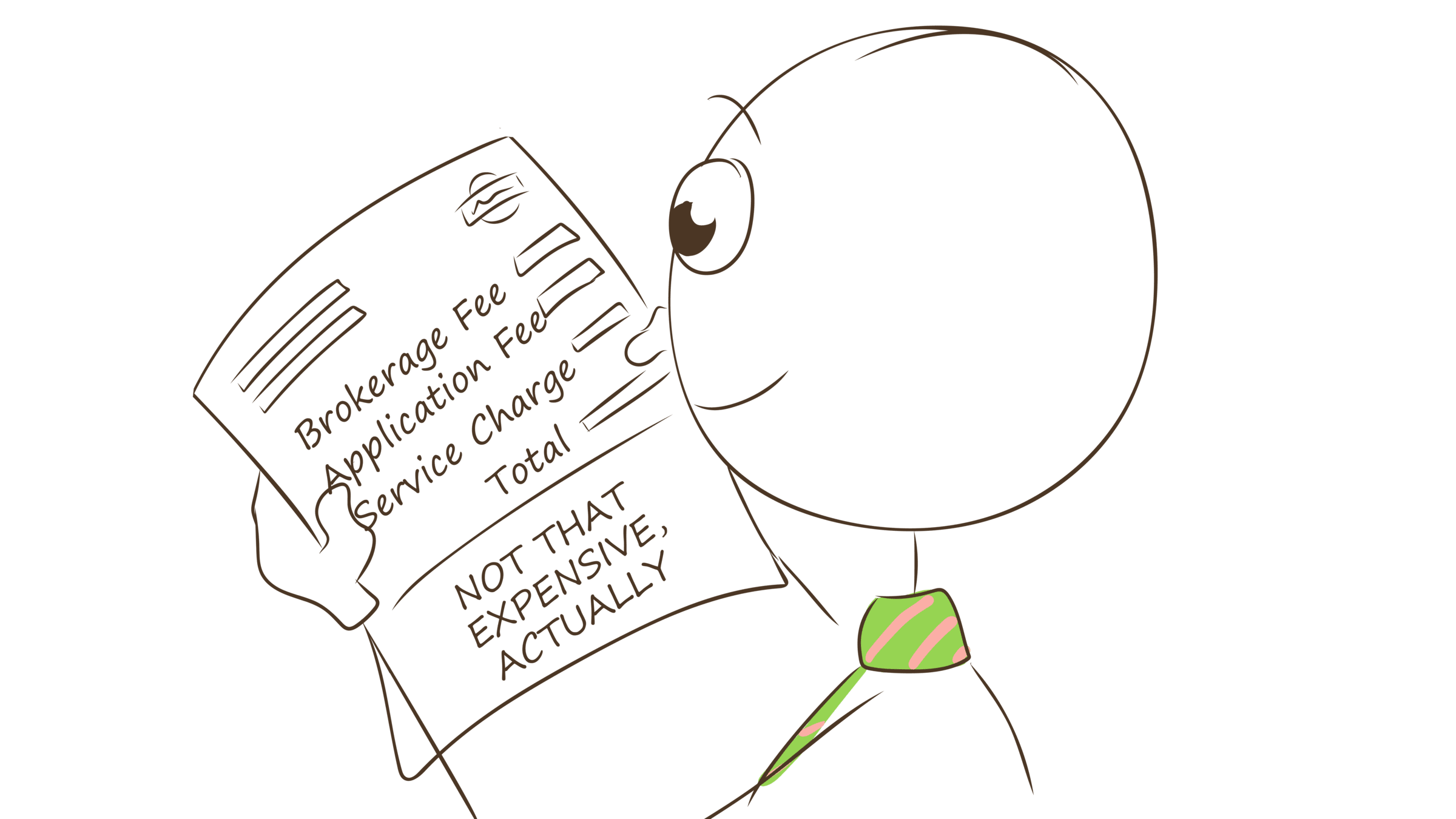

Understanding the cost of invoice factoring is vital for business owners considering this financing option. Invoice factoring involves selling accounts receivable to a factoring company in exchange for immediate cash, with the primary cost being the discount rate. Additional fees, such as service fees and various hidden costs, can impact the overall expense. To evaluate the true cost of factoring, consider factors like opportunity cost, administrative savings, credit protection, and improved cash flow management.
Factors influencing factoring fees include customer creditworthiness, invoice volume and value, agreement length, additional services, and market conditions. Negotiation strategies to secure better rates involve researching and comparing multiple factoring companies, understanding market standards, and leveraging strengths such as invoice volume and creditworthiness. Being prepared to walk away and maintaining professionalism during negotiations are also essential.
Hidden costs can include due diligence and application fees, minimum volume requirements, additional service charges, early termination or exit fees, overdue invoice charges, and contract renewal or extension fees. Seeking professional guidance and thorough documentation of agreed-upon terms are key negotiation tactics. Overall, understanding the cost of invoice factoring and effective negotiation can help businesses optimise their financial strategies and make informed decisions.

To make informed financial decisions and optimise the benefits of invoice factoring, business owners must understand the cost of this financing solution. This comprehensive article will explore the intricacies of invoice factoring costs, shedding light on the components contributing to the overall expenses. Additionally, we will delve into the factors influencing factoring fees, uncover hidden costs that may impact your bottom line, and equip you with effective strategies to negotiate better rates with factoring companies.
When considering invoice factoring as a financial solution for your business, it’s crucial to understand the fees and charges. It offers various benefits, such as improved cash flow and increased working capital. A clear understanding of the costs allows business owners to determine whether the expected benefits of factoring outweigh the cost of this financing solution. In this article, we will explore the costs associated with invoice factoring and shed light on critical aspects to consider when evaluating this financing option.
Before delving into the costs, let’s recap what invoice factoring entails. It is a financing method where businesses sell their accounts receivable to a factoring company in exchange for immediate cash. The factoring company typically advances a percentage of the total invoice value upfront, often upward of 70 percent. The remaining amount, minus fees, is paid to the business once the customer pays the invoice.
Invoice factoring ensures a steady cash flow by converting your accounts receivable into immediate cash. This can help you better manage your working capital, pay suppliers promptly, negotiate early payment discounts, and meet your financial obligations without incurring late payment penalties.
Understanding the costs associated with invoice factoring is essential for making informed financial decisions for your business. While factoring fees are an integral part of the service, assessing the overall value gained from improved cash flow, credit protection, and streamlined operations is crucial. By evaluating the true cost of factoring and selecting the right factoring company, you can leverage this financing option to enhance your business’s financial health and growth potential.
One of the primary factors factoring companies consider when determining their fees is the creditworthiness of your customers (debtors). Factoring companies evaluate the creditworthiness of your customers to assess the risk involved in advancing funds against your invoices. They examine your customers’ payment history, financial stability, and credit ratings to gauge the likelihood of timely payments. If your customers have a strong credit history, it can positively impact the discount rate the factoring company offers.
Factoring companies employ various tools, such as credit checks and credit reports, to evaluate the creditworthiness of your customers. They consider factors such as the industry your customers operate in, their payment history, and any outstanding debts to determine the level of risk involved in advancing funds against your invoices. Customers with a strong credit history and reliable payment behaviour are considered lower risk, and factoring companies may offer more competitive rates for invoices associated with such customers. Conversely, invoices tied to customers with a higher risk profile may attract higher factoring fees to compensate for the increased risk exposure.
The volume and value of invoices you plan to factor also impact the fees charged by factoring companies. The number and total value of invoices you factor can significantly impact the overall cost. Factoring companies often offer volume-based discounts or reduced rates for larger invoice volumes, as higher invoice volumes generally present economies of scale for factoring companies. These discounts can be tiered, meaning the fees decrease accordingly as your volume increases. Discuss your business’s invoice turnover and volume when negotiating favourable terms with the factoring company to ensure your fees align with your anticipated invoice volume.
Some factoring companies may set minimum volume requirements for their services. If your invoice volume falls below the threshold, additional fees or a higher rate may apply. Understanding any volume-related terms and requirements upfront helps you assess the suitability of the factoring company for your business.
The duration of your factoring agreement can affect the cost structure. Factoring companies typically structure their fees on a monthly basis. The longer the agreement, the more months of service the factoring company provides, which can affect the overall cost. If you have a short-term funding requirement, such as seasonal financing, opting for a shorter factoring agreement can help minimise the cost.
Factoring companies may charge a monthly service fee to cover administrative costs and ongoing support. This fee is usually a flat rate and can vary based on the complexity of the factoring arrangement and the services provided. Longer agreements may offer more favourable terms, including potentially reduced monthly service fees. In some cases, terminating a factoring agreement before its agreed-upon term can result in additional fees. Factoring companies may charge termination or early exit fees to account for the potential loss of revenue from the agreed-upon factoring period. Reviewing the terms regarding termination and early exit fees to understand the financial implications of ending the agreement prematurely is crucial.
Factoring companies often provide additional services and value-added benefits beyond the basic financing of invoices. These services, listed below, can impact the overall fee structure.
Credit Protection: Some factoring companies offer credit protection services to safeguard businesses against non-payment or customer insolvency. This service, which mitigates the risk of invoice defaults, may come at an additional cost. However, it offers peace of mind and financial protection for your business in case of customer payment issues.
Collections and Credit Control: Factoring companies may provide collections and credit control services as part of their offering. This includes managing the collection process, following up on outstanding payments, and handling customer disputes. These additional services can streamline your accounts receivable management but may be reflected in the overall fees charged by the factoring company.
Reporting and Analytics: Some factoring companies offer advanced reporting and analytics tools to help you gain insights into your cash flow and customer payment trends. These tools can provide valuable information for your business planning and financial decision-making. However, they may be bundled into the fee structure or offered as optional add-ons, impacting the overall cost.
When engaging with factoring companies, it’s essential to negotiate and review the terms and conditions offered. Keep the following tips in mind:
To optimise the costs associated with invoice factoring, it’s crucial to choose the right factoring company for your business. Remember, each factoring agreement is unique, and it’s advisable to thoroughly review the terms and conditions offered by potential factoring companies before making a decision. With careful consideration and a comprehensive understanding of the costs involved, you can harness the benefits of invoice factoring to propel your business forward. Consider the following factors:
Understanding how factoring companies determine their fees is crucial for businesses considering invoice factoring as a financing option. Creditworthiness, invoice volume and value, length of the factoring agreement, additional services, and market conditions all contribute to the fee structure. By striking the right balance between cost and value, businesses can harness the advantages of factoring while maintaining a healthy financial position and supporting growth and profitability.
Factoring companies may charge additional fees for collection services or credit control. These charges cover the cost of managing the collection process, following up on outstanding payments, and addressing customer disputes. It’s important to clarify whether these services are included in the base fee or if they incur additional expenses.
Access to advanced reporting and analytics tools can provide valuable insights into your cash flow and customer payment patterns. However, some factoring companies may charge extra for these features. Evaluate the importance of these tools for your business and determine if the associated costs are justified.
While credit protection can be a valuable service offered by factoring companies, it often comes with an additional cost. Factoring companies may charge fees for providing credit insurance or protection against non-payment or customer insolvency. Assess the benefits and costs of this service to determine if it aligns with your risk management strategy.
While invoice factoring eliminates the need for in-house accounts receivable departments, there may still be administrative costs to consider. These can include costs associated with providing the necessary documentation, record-keeping, and ongoing communication with the factoring company. While the factoring company may not directly charge these expenses, they can impact the overall cost-effectiveness of the arrangement.
Understanding the hidden costs of invoice factoring is vital for making well-informed financial decisions for your business. Conduct thorough research and compare multiple factoring companies to select a partner that offers transparent fee structures, aligns with your business needs, and provides value-added services without imposing excessive charges. Additionally, open communication with the factoring company is crucial. Discuss all fees, charges, and potential hidden costs upfront to ensure there are no surprises down the line. Clarify any ambiguities and seek clarification on any terms that may impact your overall cost-effectiveness.
Once you have successfully negotiated better rates with a factoring company, ensure that all agreed-upon terms are documented in a clear and comprehensive agreement. Review the contract carefully to confirm that it reflects the negotiated rates, fee structures, service levels, and any additional benefits. Clarify any ambiguous clauses or uncertainties to prevent misunderstandings or surprises in the future.
Negotiating better rates with factoring companies requires thorough preparation, research, and effective communication. By leveraging your business’s strengths, understanding the market landscape, and exploring multiple options, you can increase your chances of securing more favourable terms. Emphasising invoice volume, creditworthiness, long-term potential, and customised solutions can strengthen your negotiating position. By employing these strategies, you can optimise the cost-effectiveness of invoice factoring, secure better rates, and forge a successful partnership with a factoring company that supports your business’s financial growth and stability.



© 2024. Guavas Finance Ltd



© 2024. Guavas Finance Ltd